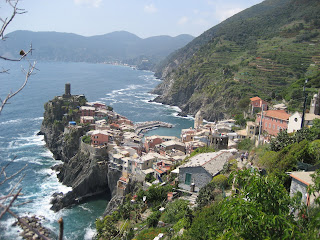The Cardiff Chronicles-The Day Before The Battle
The script had been written for the 20th of October final in Paris between The All Blacks and the hosts France.
The top ranked team in the world and the most feared team in the world vs the unpredictable hosts, the team which shocked the All Blacks and indeed the entire world, when they knocked them out of the World Cup in 1999.
However, similar to compatriots Amelie Mauresmo and Richard Gasquet playing on the red clay at Roland Garros in the French Open, the pressure of playing on their own big stage was too big when they met Argentina in the world cup opener.
It might not have been the 20th of October, actually it was two weeks before that, it was the 6th of October, it was a clash during the World Cup quarter finals which saw the dream final in Paris being played far from the bugles and the baguettes and closer to Brains and the home of Bryn Twyfel.
It could only be in the great sport of rugby that the world cup hosts played one of the biggest matches of their lives in Cardiff.
Like the Welsh supporters who had to sheepishly offload their quarterfinal tickets for their match against the Springboks in the quarter finals, the French now had to get out their English and Celtic phrase books and come to Cardiff.
This was my first time in Wales, I looked forward to not having to find news on rugby near the obituaries section, however with Wales being dumped out of the World Cup, I did read many a lament for Welsh rugby, but at least it was only the articles on the Welsh team which were near the death notices and not the articles on the quarter final clashes.
When travelling, it is very important for me to acquaint myself with the local dishes and drinks, finding Brains was no problem. However, asking for Welsh rarebit, lava bread and soda bread was similar to asking a white South African whether they voted for the National Party during Apartheid- “No, no-one eats or makes that food”, “What, you can not buy that, you can make it, but I do not know how”- It was a blank rejection of their national culinary delights.
I settled for an Oggy, a mutton pie. It was wonderful to overhear these two aged gentlemen sitting on a bench talking about Wales’s fall from grace, but, yet, also the hope that the young cavalier James Hook will be the next big thing in World rugby.
Walking past the Cardiff Castle and through the Victorian arcades, I hardly saw any French supporters, just confident Kiwi’s. “It will be tough, but we are going to win”, “I am more worried about Australia, the French don’t have a chance here, this is a home game for us”.
I caught a bus to Merthyr Tydfil and was picked up by Alan Howells, a rugby fanatic who had stayed on our family farm in Vryburg, North West, during the 1974 British Lions tour of South Africa. We listened to a more popular Jenkins-Katherine, a new Welsh mezzo-soprano while driving through the majestic Brecon Beacons, her namesake Gareth, the former Welsh coach, is a less revered Jenkins, largely blamed for the early exit in the World Cup.
I spent the night drinking Welsh beer at Cefn Coed Y Cymmer rugby club, an amateur village club. If Wales could only play rugby liked their countrymen drank, I guess they would still be in the World Cup and we would be out. I was taught a lesson by the old men at the club, but they were not in a mood to gloat, instead I was told about why Wales did so badly in the World Cup, why Jenkins deserved to go, but the management should have walked the plank with him.
Besides drinking a South African under the table, the club members, partisan towards the Llanelli Scarlets, saw the Scarlets record their first ever victory against Leinster at Leinster. Maybe the French were watching the Scarlets…
-------------
This was the day before the World Cup Quarterfinals match between France and New Zealand in Cardiff. It was the 5th of October.

































